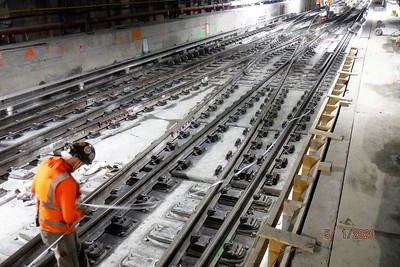Earlier this week, the Brookings Institution published a piece by Nicol Turner Lee, a Senior Fellow in Governance Studies and the Director of the Center for Technology Innovation. In it, Turner Lee suggests that the Biden administration should consider a “tech New Deal.” The strategy describes an “all-hands-on-deck” approach to improving America’s technology position. It starts by building out the US technology infrastructure.
The federal government has been involved in the extension of communications infrastructure in rural America for decades. Unbelievably, many pockets of the rural US still do not have “lifeline telephone service.” That’s a euphemism for ordinary telephone service, which most Americans have enjoyed (or not) for the last hundred years or more.
So, rural communities get by with spotty cellular service or satellite telephone service, or more likely, they get nothing at all. Large telecommunications companies don’t have enough economic incentive to build telecommunications infrastructure everywhere. Small, rural “mom-and-pop” telephone companies don’t have the resources to expand service. That’s ok, because rural customers don’t have the cash to pay for the service improvements. According to the Department of Transportation, it costs about $30,000 to lay a mile of fiber optic cable in a rural area.
Not having “phone service” in rural areas means that there’s no high-speed Internet service either. That is a major disadvantage for rural schools and businesses. Lack of critical infrastructure also makes it hard to deliver health care services. And the pandemic has only accentuated America’s technology infrastructure gaps.
Tech New Deal Is Ideal for Two-Year Programs
Turner Lee proposes a “technology New Deal” that focuses on building out the United States technology infrastructure. The program would tackle areas that are too small for major telcos and too expensive for small operators. Building out rural telecommunications infrastructure would require a small army of skilled workers. That would include 5G and fiber installers, design/build teams, network operators, network maintenance technician. It would also require telecommunications technicians, data specialists, customer service personnel and tower operators. These are all two-year (or fewer) programs, and they offer comparatively high wages.
WCC scrapped its telecommunications program long ago, which is too bad because the industry never stopped needing telecom technicians. In fact, telecommunications technologies have changed, but the demand for telecom technicians has remained constant. Current projections don’t show much in the way of growth in this area, but a large-scale infrastructure plan would change that overnight.
A “tech New Deal” would bring rural America into the 21st century by offering quality Internet access at a reasonable cost. Technology gaps are turning the US into “the haves and the have nots.” So building out the rural communications infrastructure is critical. To do that, we need trained personnel.
This is exactly the kind of educational opportunity to look for. Washtenaw County is the ideal place to train people to fill the technology gap.
Photo Credit: MTA Construction and Development Mega Projects , via Flickr
























